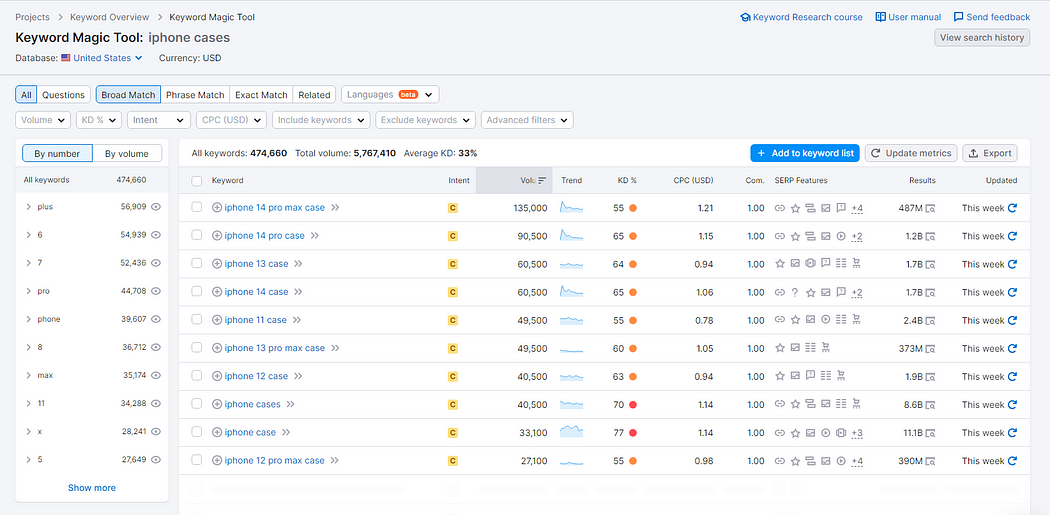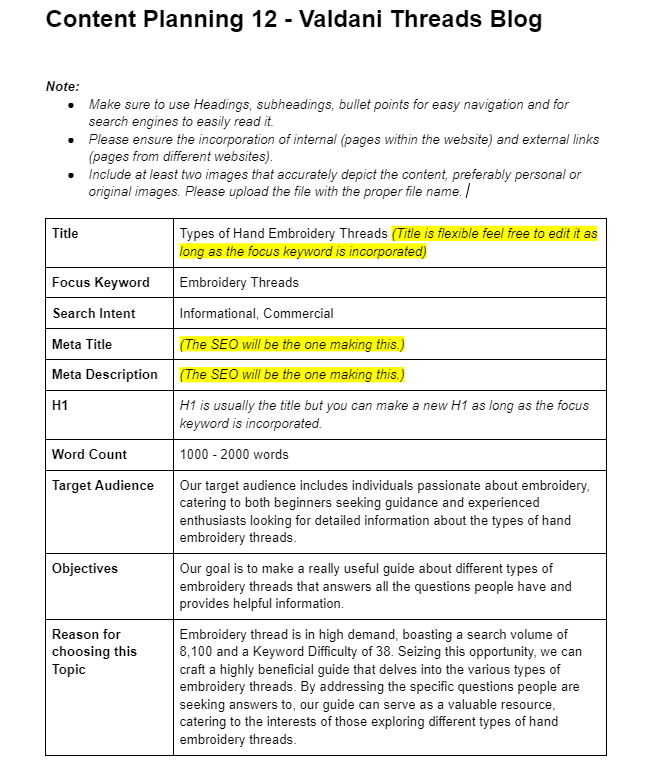Portfolio
SEO work sample
Keyword Research:

Keyword research is the foundation of a successful SEO strategy. It involves finding the right keywords to target in your content to drive organic traffic.
How I Work:
– Identify relevant, high-traffic keywords.
– Analyze keyword competition and search intent.
– Analyze competitors keywords
– Incorporate keywords strategically into content.
– Monitor and update keyword strategies as needed.
Tools Used:
– Keyword research tools (e.g., Google Keyword Planner, SEMrush).
– Competitive analysis tools.
– Rank tracking software.
Sample Works:


Results:
My keyword research and optimization efforts have led to a 26% increase in organic search traffic for clients, resulting in a substantial boost in online visibility.
On-Page SEO:

On-page SEO involves optimizing elements directly on your website to enhance search engine visibility. It’s crucial for ensuring that your content is easily discoverable and user-friendly.
How I Work:
– Optimize meta titles and descriptions for search engine and user appeal.
– Improve header tags for content structure and readability.
– Incorporate relevant keywords naturally within the content.
– Optimize images, geo tags, and alt tags.
– Ensure mobile responsiveness for a great user experience.
– Incorporate strategically placed internal links to enhance content’s SEO.
Tools Used:
– SEO plugins (e.g., Yoast, All in One SEO Pack).
– Keyword research tools (e.g., Google Keyword Planner, SEMrush).
– Google Search Console and Google Analytics for data analysis.
Work Sample:-


Results: I have increased organic traffic for multiple clients by an average of 25% within the first three months of implementing on-page SEO strategies. This led to a significant boost in conversions and revenue.
Off-Page SEO:
 Off-page SEO involves activities outside of your website that boost its credibility and authority in the eyes of search engines. It’s essential for building backlinks and increasing online presence.
Off-page SEO involves activities outside of your website that boost its credibility and authority in the eyes of search engines. It’s essential for building backlinks and increasing online presence.
- How I Work:
– Quality Article and Blog posts Creation.
– Link building through high-quality and relevant websites.
– Guest posting on authoritative platforms.
– Social media marketing to drive traffic and engagement.
– Online reputation management.
– Competitor analysis for insights and opportunities.
Tools Used:
– Outreach tools for guest posting.
– Backlink analysis tools (e.g., SEMrush, Screaming Frog).
Sample Works:


Technical SEO:

Technical SEO focuses on the backend of your website to ensure it’s easily accessible to search engines and provides a great user experience.
How I Work:
– Optimize website speed and performance.
– Ensure mobile-friendliness.
– Fix broken links and errors.
– Disavow Toxic Backlinks.
– Website Analysis using Google Search Console.
– Enhance site structure, Robots.txt, Schema markup, and XML sitemaps.
Tools Used:
– Website performance tools (e.g., Google Page Speed Insights).
– SEO audit and site analysis software. (e.g., SEMrush, Google Search Console, Google Analytics)
– Crawling and indexing tools. (e.g., Screaming Frog)
Sample Works:


Sample Screaming Frog Analysis
You can check an SEO Audit plan
Results:
I have improved website load times by an average of 35%, resulting in a 10% increase in search engine rankings and a significant reduction in bounce rates for clients.
SEO Content Writing:

SEO content writing involves creating valuable, keyword-optimized content that not only engages your audience but also ranks well on search engines. How I Work:
– Conduct keyword research to guide content creation.
– Create content guide for writers.
– Create high-quality, informative content.
– Optimize content structure, internal links, external links, and formatting.
– Update and refresh content as needed. Tools Used:
– Keyword research tools. (e.g., Google Keyword Planner, SEMrush).
– Content management systems (e.g., WordPress).
– SEO writing and editing software.

Results:
My content strategies have improved clients’ organic traffic by an average of 35%, leading to higher engagement and longer time spent on their websites.

